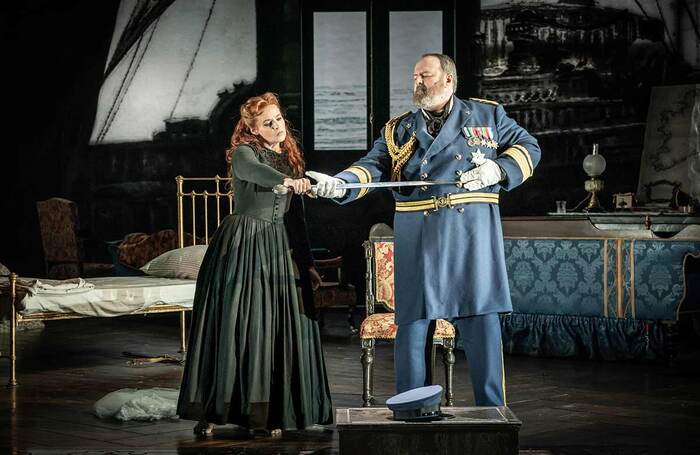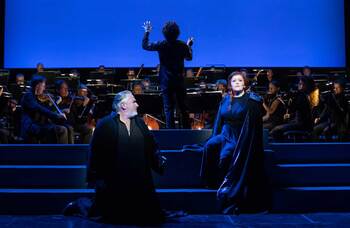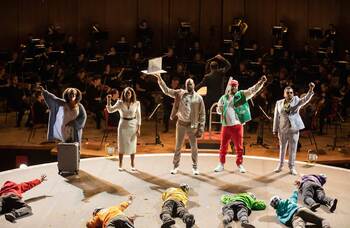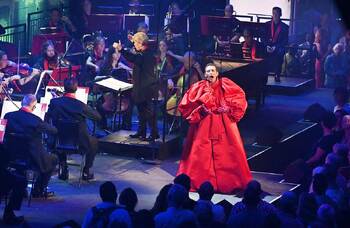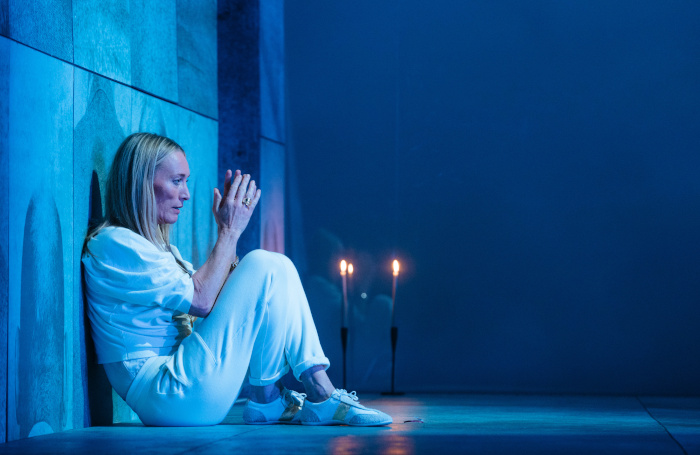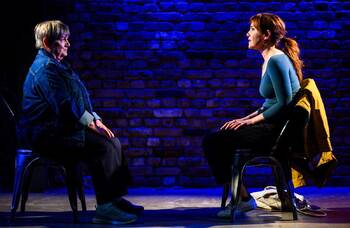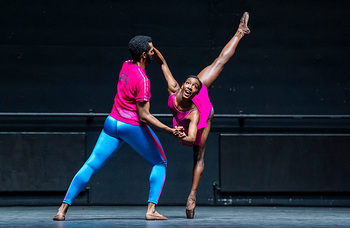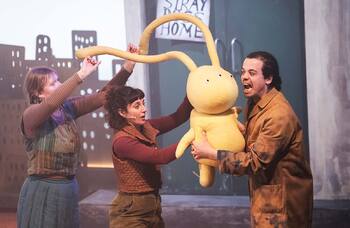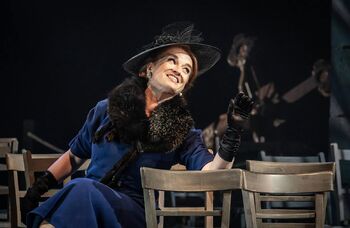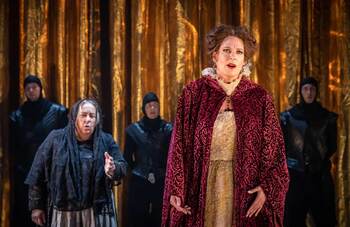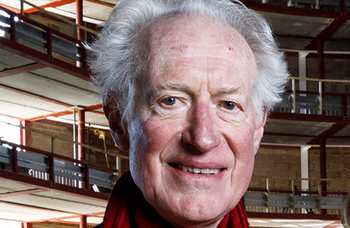Tristan and Isolde review
Sensational singing and sensitive orchestral playing in a thoughtful new staging
Wagner conceived this opera, premiered in Munich in 1865, as a "full-blooded musical conception" and a "monument to love". It is harmonically advanced (spawning the famously ambiguous ‘Tristan chord’) and erotically charged, and the immediacy of the passions it depicts reflects the fact that the love triangle between the Cornish knight Tristan, Irish princess Isolde and Tristan’s uncle, King Marke of Cornwall (to whom Isolde is reluctantly betrothed) was echoed by the real-life scenario in which Wagner was positioned between his muse-and-lover Mathilde Wesendonck and her husband Otto.
At the core of the opera is the idea of a love so complete that it can properly be consummated only in death. Charles Edwards’ new production for Grange Park Opera seems to play on the central lovers’ loosened grip on reality by simultaneously displaying the backdrops for all three acts, the current one always placed at the back, so that the elements of time and place are merged. This, and further directorial ideas, represent some thoughtful reframing, but what is revelatory is the quality of the music.
The Gascoigne Orchestra is directed with great warmth by Stephen Barlow, who swaps sheer homogenous heft (no doubt preferred by some Wagner lovers) for the ear-tickling, colourful detail of inner lines. At the same time, the dramatic hunting horns opening Act II leap in with great presence, as does the tight, precise male chorus. The night music that follows is also beguiling.
Continues...
And then there’s the cast, with no hint of a weak link. Rachel Nicholls is a superhuman Isolde, not only showing remarkable stamina in a punishing role, but allying shifting colours alongside an impressively ample and unforced tone. Just as she steals the first act, tenor Gwyn Hughes Jones dominates the third as the mortally wounded Tristan, himself singing with passion and without straining. Christine Rice and Matthew Rose also give standout performances as Brangäne and King Marke respectively, Rice smoothly warm in tone and Rose devastating on discovering he has been betrayed by Tristan.
A couple of Edwards’ interventions eluded me in the final act, the entirety of which Tristan spends dying from the mortal wound inflicted at the end of Act II. The first is the reason for Tristan leaving the stage once Isolde finally arrives to save him; the other is the exact nature of Isolde’s transfiguration at the end – undeniably dramatic a stroke though this is.
More Reviews
Recommended for you
More Reviews
Recommended for you
Most Read
Across The Stage this weekYour subscription helps ensure our journalism can continue
Invest in The Stage today with a subscription starting at just £7.99
